The Emergency Medicine Conference took place on the 23 and 24 January 2013 at the Hallam Conference Centre, London. Though the conference was comparatively a small gathering, the quality of the event's speakers and the relevancy of issues they tackled were exemplary, with particular focus and attention centred on pre-hospital care, Ambulance Trusts and of course, paramedic practice itself.
Olympian challenge
Jason Killens, Deputy Director of Operations at the London Ambulance Service provided a summary of the trusts achievements, failures and most importantly, lessons learned in handling the significant and media-sensitive 2012 London Olympic Games. In particular he spoke about the ‘nervousness over industrial action’ at the time of the games, as well as the stress of dealing with ‘admissions from Olympic athletes and their families who attended the games’ a worry no doubt exacerabted with the looming hoards of reporters and journalists ready to pounce on any failure from the LAS, avoidable or not.
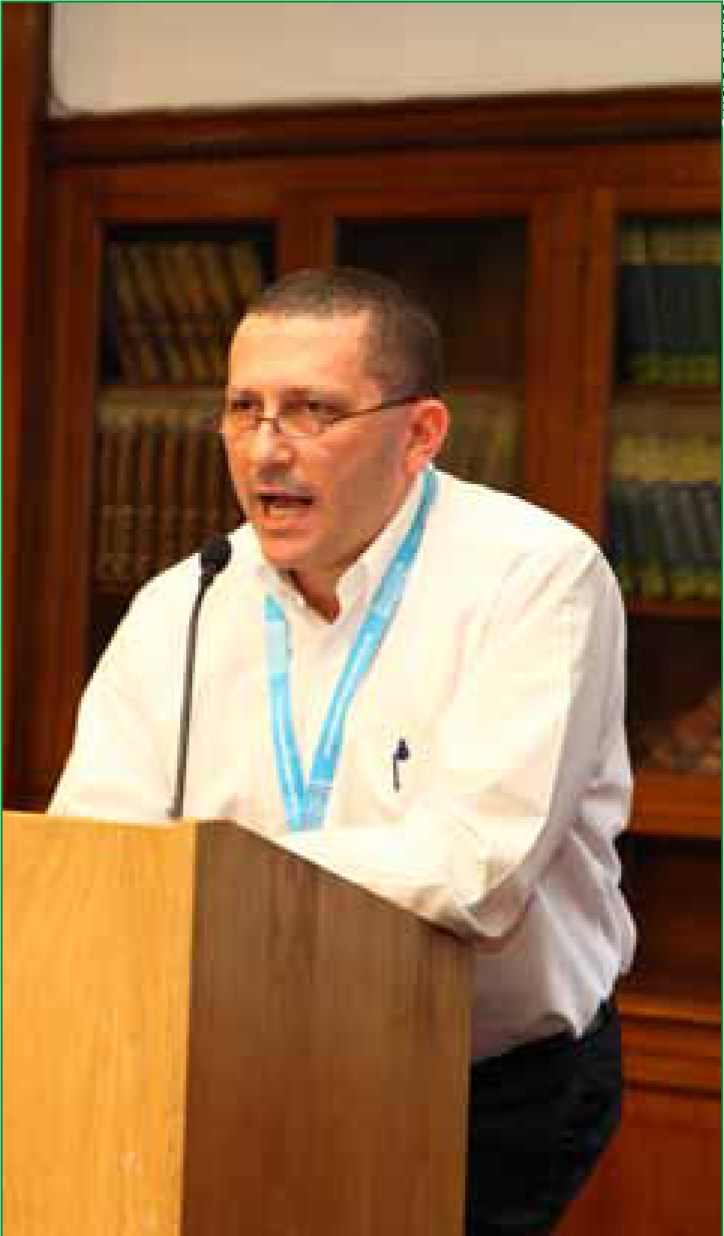
Killens also accounted the intersting ‘8 % rise in the number of incidents throughout the games [Paralympic games not inclusive]’ but suggested that that was likely due to the increase in activity and number of people in the capital at the time rather than increased call-outs within the native population. Though accepting some shortcomings found as a result of the games (‘we would have had a larger response team in hindsight…we were caught out to be honest’) the way the LAS delt with the affair sounded, on the whole, admirable—and, as a further bonus, the games also managed to educate thousands of people across the capital in quality CPR practice.
Fiona Lecky, Clinical Professor at the University of Sheffield and Reserch Director for the Trauma Audit and Research Network gave a talk titled: Imporing Pre-hospital Trauma Services in the UK. Having worked as a crowd doctor at anchester United's Old Trafford and also as a practitioner at the Olympic games Lecky, clearly no stranger to pre-hopsital trauma both ‘at the desk’ as well as ‘in the field’, noted the most difficult aspect of trauma care facing paramedics, the decision of whether to ‘stay and treat or scoop and run?’
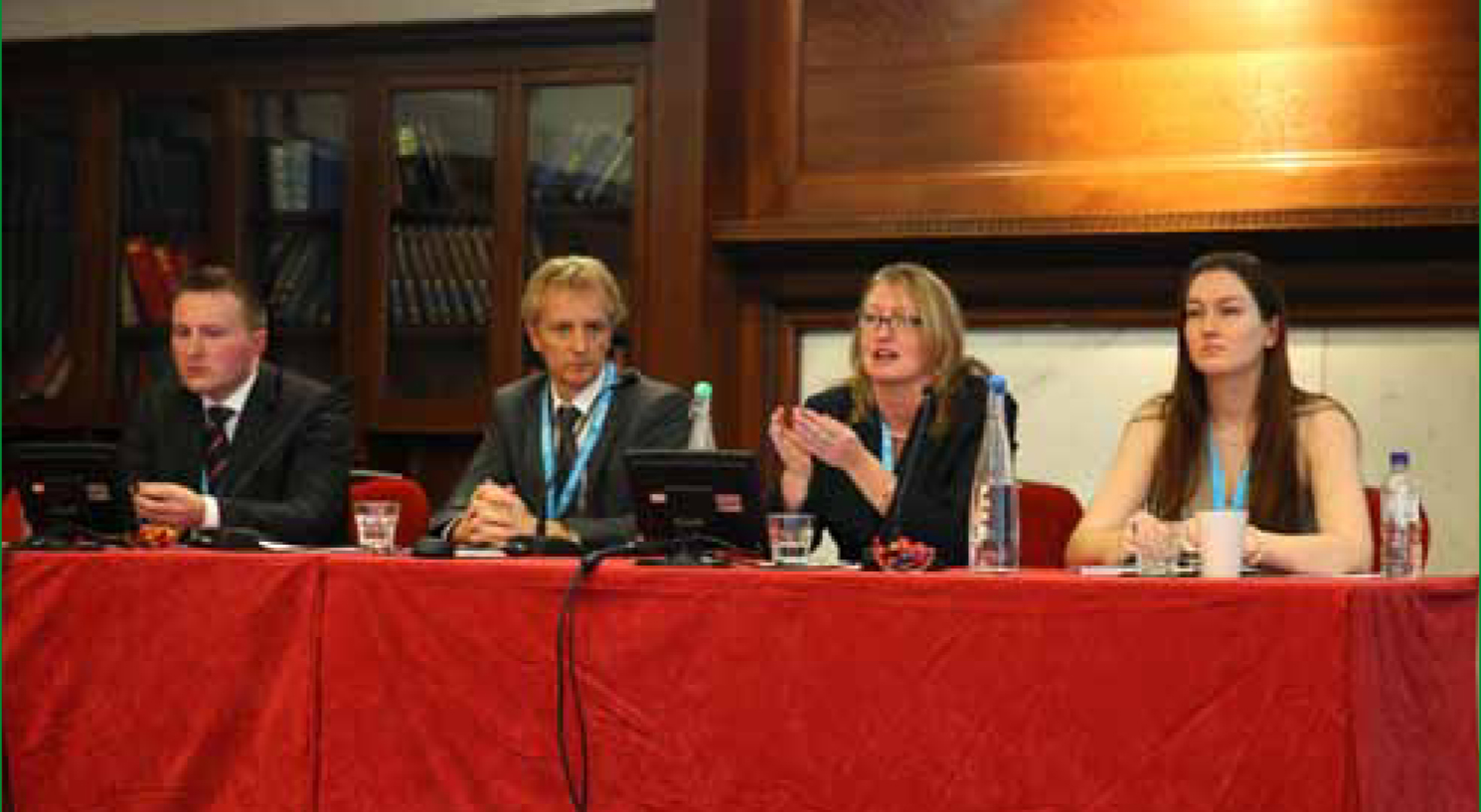
Lecky noted how this question becomes even more difficult to to answer in cases of blunt trauma, in particular to the head of the patient, as paramedics have to decide on very little information in a very short period of time, and often without communication (if the patient is either unconscious or has a high Glasgow Coma Score). Lecky drew attention here to those incidents where specialist knowledge on-scene can prove invaluable, and that without it, the issue of patient concent concernign treatment can become particularly contentious.
Debate
The debate, Should pre-hospital trauma care be physician-led or not? was heatedly discussed between the two teams, on one side Andy Newton, Consultant Paramedic and Director of Clinical Operations, South East Ambulance Service and Mark Block, Consultant Anaesthetist and Honorary Clinical Senior Lecturer at the Aberdeen Royal Infirmary and the other, Dr Phillip Hyde, Curriculum Chair of the Intercollegiate Board for Training in Emergency Medicine and Consultant Paediatric Intensivist at University Hospital Southhampton, joined by Ian Mursell, Lecturer in Paramedic Science at the University of Coventrty
‘…they drove home the argument that competency not title should dictate the leadership of the pre-hospital emergency care team’
Newton and Block argued well using simple, hard-hitting soundbites ‘you don't have trauma centre you have a trauma system, and that the medical physician is well placed to develop this system as a whole’, with Block also suggesting a compromised position of having a physician-led team that may be remotely managed, that is, that telecommunications could afford the use of a physician on-scene while allowing them to stay in the hospital; or alternative call-outs at the same time.
Hyde and Mursell drove home the the argument that competency not title should dictate the leadership of the pre-hospital emergency care team
The pair spoke of trying to dispel a ‘dogma which exists in pre-hospital care’ pointing out that if nurse practitioners, who are bestowed with the responsibility of transferring preterm babies, are afforded this responsibility, why should the same level of trust not be granted to advanced paramedic practitioners.
Following this, Colonel Tim Hodgetts, Honorary Professor of Emergency Medicine at the University of Birmingham presented a lecture titled: Emergency Care and trauma management in military medicine.
A large range of topics were covered, and perhaps not all of immediate interest to paramedics working in the UK with a civilian population, but two areas of great relevency presented themselves.
First the many innovations in trauma wound care and coagulation (that naturally that the milliary will use more prolifically than conventional paramedcics) being seen and the efficency with which the millitary deals with major trauma incidents—a virtue Hodgetts indicated Ambulance Trusts could learn from.
Garath Mallon gave a talk on young cardiac arrest in the young, an area clearly overlooked by society and, as of yet, significantly ignored by public awareness campaigning.
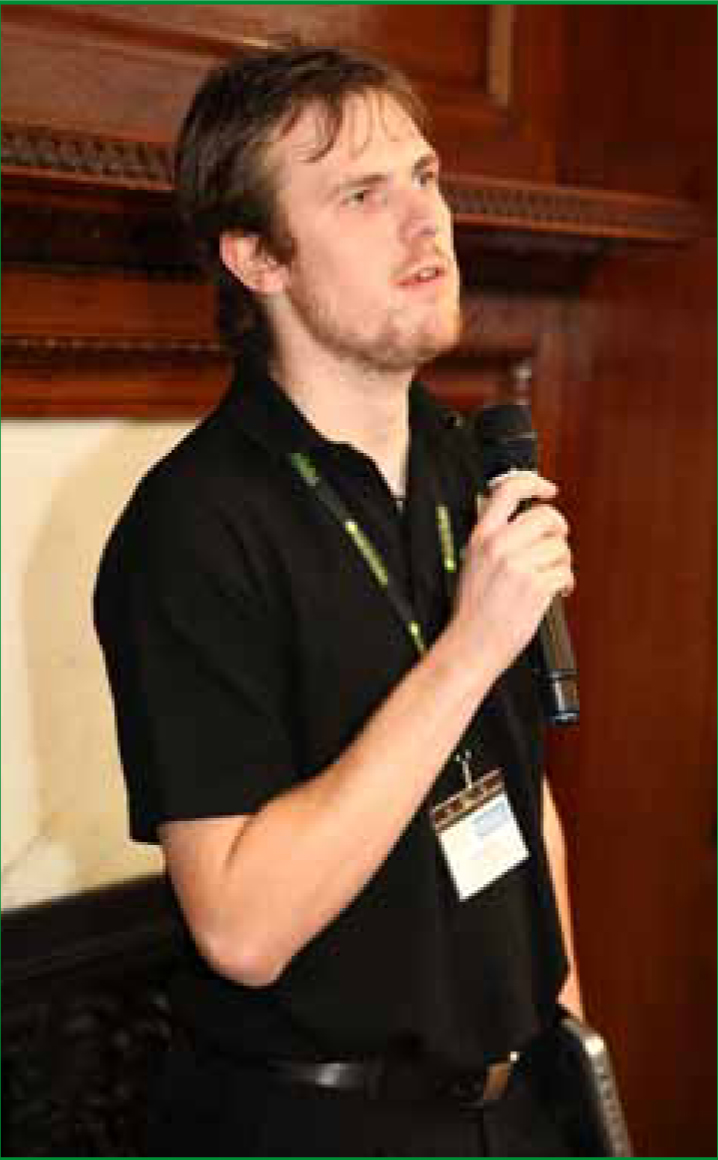
Mallon covered a series of cardiac-related issues likly toi affect the younger population with great speed and comprehension; such as Wolff-Parkinsons-White, and Marfan syndrome. He called on paramedic practitioners to be at the forefront of detecting and recording young-cardiac events, comparing the paramedic profession to many other vocations, most notably, detectives ‘we detect’ he said ‘and we are very good at pre-hospital care as we are the experts in the field’.
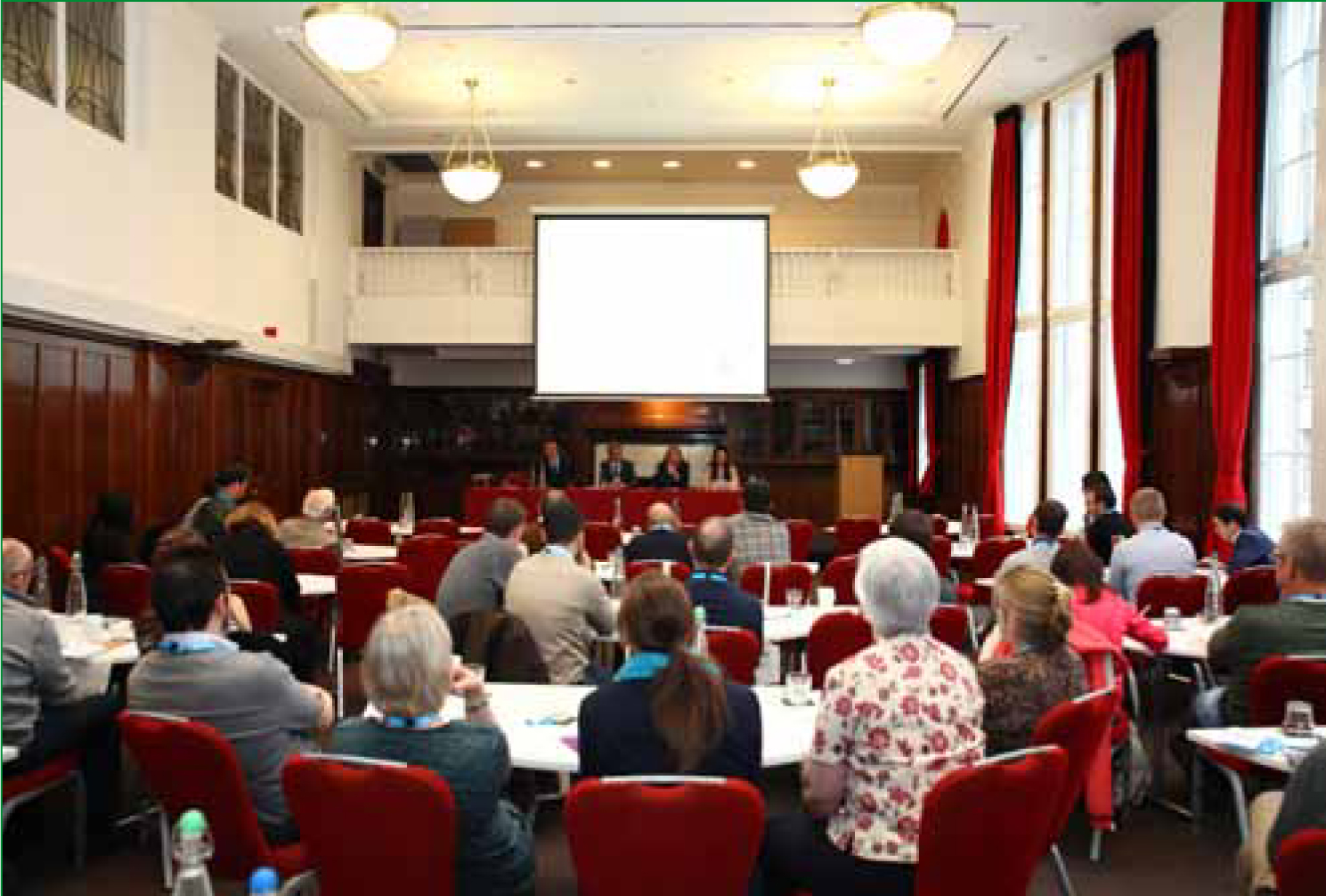
Braking the bad
Joan Juniper, Senior Tutor in Emergency Care at the Univerity of Surrey gave a talk on the delicate and universally challenging issue of explaining and reporting death during paramedic practice,
The presentation: Grief and Loss: How does your method of breaking bad news affct your patients and thier famililies? was extreemely informative, delivered well by a healthcare worker who clearly has had extensive experience in the area. Detailing the process of the Kübler-Ross model, Juniper talked paramedics through the grief process from the perspective of the patient family member: ‘…the first stage that can be encountered,’ she says, ‘is anger’. ‘Why is this happening to me’, ‘this isnt fair’ and you didnt do enough for [the patient]’ are some of the first reactions that patient's relative can have toward the practitioner present.
Here, Juniper stressed the importance of patience from the paramedic on-scene in such circumstances and the fact that the patient, however irate they may get, are in fact angry at nothing more than an unfortunate situation. ‘People can be angry with themselves, others, the deceased or even the paramedic on scene,’ she stated, ‘but paramedics may also find that the reletive of the deceased may say inappropriate things or act strangely after the death of a loved one’ and that ‘paramedics should not be phased by this if it occurs’ as it is all part of the bereavement process.
The relative then may move on to a bargaining stage in which they try to reason with the medical practictioner on scene or a higher power to bring the deceased back—again, Juniper reinforced the point that paramedics should not feel phased by this, and should try to help the victim through the pain or they may resort back to the anger phase.
One of the most important things the paramedic can bear in mind is to avoid the use of euphamisms or metonymies to break the news. ‘Expressions such as ‘passed on’ ‘gone away’ or ‘gone to sleep’ can often cause more damage than good’, said Juniper, and stressed that this point as stressed to be paramount when breaking news to children, and that medical practitioners should try to encourage parents to avoid such phrases as ‘gone to sleep’ too, as this may hinder the child's coming to terms with the death of a loved one.
The penultimate stage, depression, can often last the longest, but Juniper gave advice that may not seem to be as immediately apparent sch as the avoiudance of seemingly consolatory statemnts, and should avoid stating things like ‘move on’, ‘its ok’ and ‘you may find someone else’ as this may disrupt the recovery process and encourage the victim to avoid experiencing the entirety of the pain associated with the death of someone close to them.
The final stage, accesptance may seem totally out of the remit of paramedic practice. Nevertheless Juniper argued that this stage can, and will, be reached far more easily and expediently if the former stages are delt with more adeptly by the medical practitioner on-scene at the time.
Juniper finalised the talk with several, more general points of advice, concerning berevement— namely, that Police Officers may be a potentially prefferable candidate for breaking news of a deceased relative. Though she did continue to state that the point is currently of particular attention within the Health and Care Professionals Council (HCPC) and that it may be the individual who the relative feels closest too, that is actually the better opition.
‘Expressions such as ‘passed on’ ‘gone away’ or ‘gone to sleep’ can often cause more damage than good’
Geriatric care
Dr Ian Sturgess' talk titled: Quality Care for Older People with urgency and Emergency care Needs: Overview of the Guidelines occasionally veered off-track and, as Sturgess himself admitted, onto his own personal ‘soapbox’ one in a while but the talk no less engaging or relevent beacuse of it—in fact the contrary was often true as his compassion became infectious.
Certainly, Sturgess attended the conference with a message to drive home. Speaking of the ‘inherent ageism in the NHS’, and indeed often in ‘society itself’ Sturgess called for a significant overhaul in the approach to dealing and treating geriatric patients. He spoke warningly of the ageing population of the UK, and therefore the prospective patient population of the NHS, a population which is both aging as a whole and living longer, giving rise to an inevitable change in the demand and type of service that the NHS and Ambulance Trusts will have to prepare themselves for in the future. Accoding to Sturgess, geriatric care in the ED and the pre-hopsital scene is about to get more prolific and more challenging and, if paramedics, ambulance bosses and indeed, the NHS as a whole, does not prepare appropriately, this transition will hit healthcare in the UK badly.
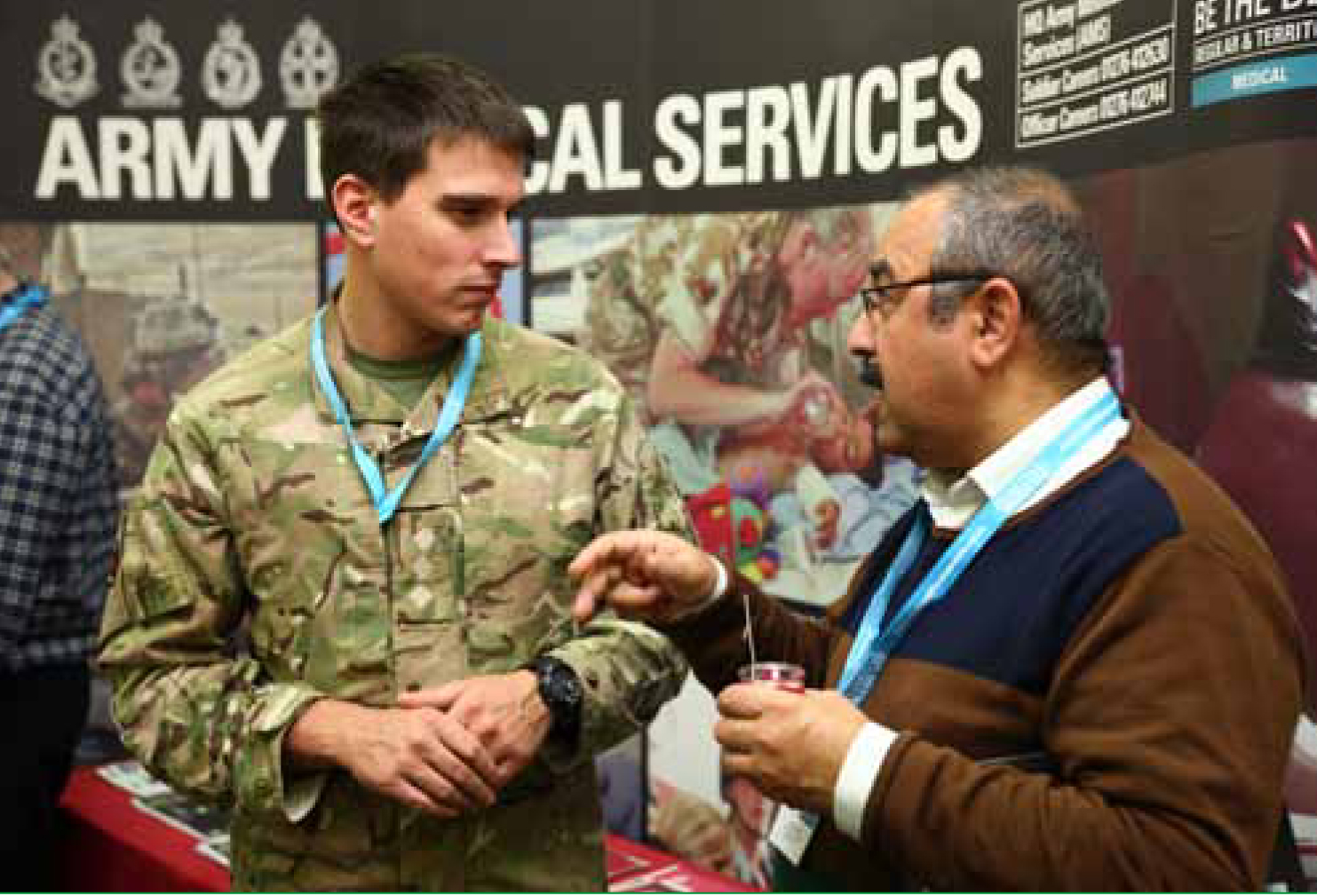
‘We need a whole system approach’ said Sturgess, ‘care for the elderly in the NHS is far from what it should be’ he said, ‘and there is more we need to be doing …pre-hopsital needs to be imporved for geriatric patients’.
But he also mentioned the massive stress future patients as part of an ageing popuation were going to have on secondary too ‘over 95 % of deaths in hopsitals occur in patients over the age of 75 years old’ he said, and surely, this number is only likely to increase. Sturgess commented on the fact that people, even NHS workers, can often inappropriately compare, simplify or overlook geriatrics in medicine. One example of this he said is when people, sometimes healthcare workers compare geriatric care with paedictric care ‘but really’, he said, ‘it is very diffferenct and can be far more challenging’—geriatric care you are usually dealing with an array of symptoms rather than just one significant codition.
‘…geriatric care in the ED and the pre-hopsital scene is about to get more prolific and more challenging.’
One of the most appawling obsevations, Stugesss said that he had experienced, was the detached means with which paramedics, doctors and other healthcare professionals can deal with geriatirc patients, often even in thier vicinity. A view, Sturgess commented, that can even stretch to the relatives themselves.
A poignant issue certainly, as it seems that when dealing with elderly patients not only may treating them with lack of concern or contempt may affect the their mental wellbeing but also the frankness, severity and authenticity when describing their issues and symptoms with healthcare workers to avoid what they may consider to be inconveniencing their family, or the NHS.
